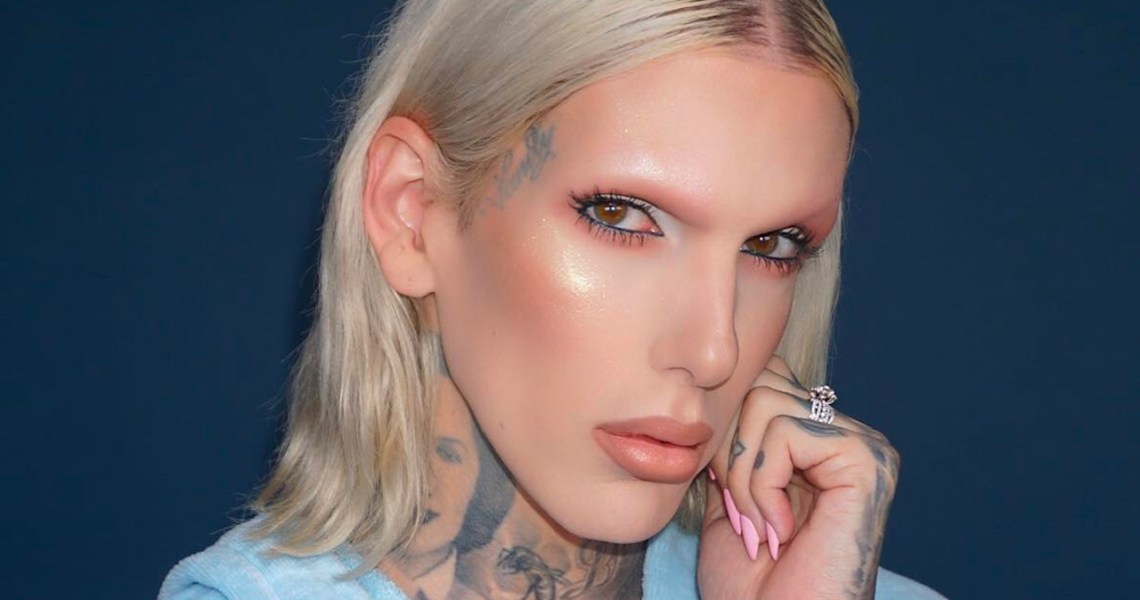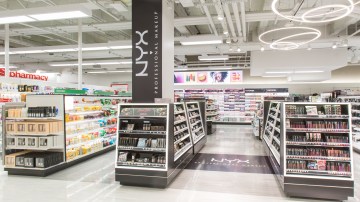Now that cosmetics giant Morphe has officially cut ties with beauty mega-influencer Jeffree Star, many are asking in hindsight why it took so long.
On July 10, Morphe announced on Twitter, “Today we’ve made the decision to cease all commercial activity related to Jeffree Star and affiliated products,” saying that the decision would “conclude within the coming weeks.” As of July 15, products by Jeffree Star Cosmetics were still available on Morphe’s website, but the Morphe X Jeffree Star collaborations were not listed. Jeffree Star Cosmetics released a response, saying, “We are shocked and extremely saddened” by the decision. Morphe also removed products with Star’s friend and fellow YouTuber Shane Dawson after Jaden Smith and Jada Pinkett Smith had criticized Dawson for his own problematic content, including videos using blackface and making lewd gestures next to a poster of Willow Smith.
While Morphe declined to comment further on the reasons for the decision, it came after influencer Jackie Aina announced on July 2 that she had cut ties with Morphe as an affiliate partner. “I refuse to align myself with a company that continues to retail antiblack racist beauty brands,” she said on Twitter. In 2018, she had previously released a statement about Star, stating, “I have not and will not excuse his blatantly racist behavior.” This referred to Star calling her derogatory terms, his use of racial slurs and his “efforts to eliminate spaces and opportunities for people of color.”
After Morphe’s decision was announced, industry watchdog account Estée Laundry posted a compilation of the multiple videos that have surfaced over the years showing Star saying racial slurs. Star had released a video apologizing for these statements in 2017, but new allegations subsequently surfaced, including texts calling Aina a “gorilla” in 2018.
The overwhelming reaction on the Estée Laundry post were comments questioning why the split with Morphe hadn’t come sooner. Aja Barber, a fashion writer, commented, “I just don’t know why it took so long. I don’t get it.” Influencer marketing experts agreed.
“Here, Morphe dawdled too long to cut ties, only doing so after weeks of public acrimony with YouTube beauty influencers calling out Jeffree Star and Shane Dawson’s racist behavior, and customers starting to challenge and protest the connection,” said Stacy DeBroff, the CEO and founder of influencer marketing agency Influence Central. “In this case, the behavior in question involves a history of racist comments, that Morphe should absolutely have known about if they did any background checking before entering a contractual agreement with Jeffree Star Cosmetics.”
Influencer product collaborations have become a key pillar of the marketing strategy of many beauty brands, including Morphe and Anastasia Beverly Hills. But the more brands rely on influencers’ names on their products for growth, the more companies open themselves to the risks of aligning with them. According to DeBroff, “While brands can structure approval for content or products, they cannot predict or control an influencer’s overall behavior, both online and offline.”
Mary Keane-Dawson, the CEO of influencer agency Takumi, stated, “If a creator we were working with was found to have a history of racist, problematic content, then we would absolutely advise a brand to cut ties with him or her, and would remove them from our platform.”
Until this larger conversation around George Floyd and Black Lives Matter, influencer racism incidents had often been lumped in by entertainment media as part of the interpersonal “drama” that pervades the beauty YouTuber world. Described as a “soap opera or reality television show,” beauty YouTuber feuds occur on a regular basis, with the drama generating clicks, views and ultimately money.
DeBroff noted that “the swirl of controversy itself drives powerful impressions and engagements.” This is especially true with influencers, who tend to generate ardent loyalty among fans.
“Provocative influencers can be good and can make for great marketing, as long as they are not harmful to the broader public,” said Keane-Dawson.
During these beauty YouTube “meltdowns,” in which influencers have gotten into spats over hair gummy promotions or business deals gone awry, they have also made serious allegations tied to racist statements and sexual assault.
A feud in 2018 that led to the resurfacing of Star’s videos, for example, also caused fans to dig up racially insensitive or racist tweets from vloggers Gabriel Zamora, Manny Gutierrez, Nikita Dragun and Laura Lee, all of which resulted in apology videos. When Tati Westbrook made her infamous 2019 “Bye Sister” video in anger at James Charles for promoting a hair gummy brand that was a competitor to her company, she accused Charles of sexual harassment. In June 2020, her apology video to Charles stated that Star and Dawson had made many accusations of sexual assault about Charles to her, which she now believes to be lies.
According to Keane Dawson, continuing to work with influencers who have been shown to have made racist statements “will diminish trust in the brand and the values which it stands for, which are the core reasons that people gain a brand affinity and keep coming back.” In the last 30 days, Jeffree Star has lost 600,000 followers, according to Social Blade.
Star is not the first beauty YouTuber to lose brand deals as a result of racist statements bring brought to light. Laura Lee, for example, lost deals with Ulta and other brands as a result of her 2018 racist tweet scandal.
According to DeBroff, “When an influencer crosses the line to offensive, as Star has with racially insensitive content, a socially responsible brand will make the decision to cut ties.”
Star has made controversy and provocation a main component of his personal brand for years, presenting himself as unfiltered and real to his 17 million subscribers. Fans count on his honesty about product efficacy, as he has proudly made videos showing which brands “hate” him for giving unfiltered opinions about the products. These criticisms have included calling out brands for a lack of inclusivity, such as Tarte for a small range of foundation shades.
He has also succeeded at generating extensive media coverage over “controversial” products such as an eyeshadow palette called “Cremated” that generated buzz on social media for being perceived as insensitive to launch during a pandemic.
DeBroff recommended that, when it comes to influencer marketing, “Brands need to do their homework, with an in-depth look at the social media content as well as offline behavior of an influencer. They need to ensure values alignment, and make sure their agreements contain a morals clause.”




